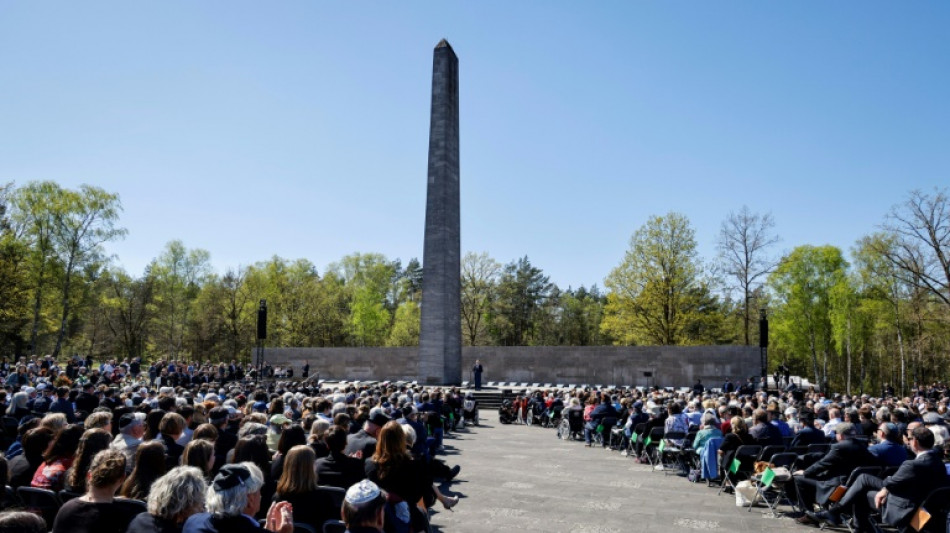

Germany marks liberation of Bergen-Belsen Nazi camp
Holocaust survivors on Sunday urged the world to keep their memories alive as Germany marked 80 years since the liberation of the Bergen-Belsen Nazi concentration camp.
More than 50 former camp prisoners joined German officials and British Deputy Prime Minister Angela Rayner for a commemorative event in Lower Saxony state.
"My message for the future is that all of us must be alert and active in combating hatred," said Mala Tribich, 94, who was born in Poland and sent to Bergen-Belsen as a child.
"That includes anti-Semitism and racism towards any group of people," she said.
More than 50,000 people died at the Bergen-Belsen camp, including the diarist Anne Frank, whose accounts of the Holocaust have become a symbol of the suffering inflicted by the Nazis during World War II.
When the Allies arrived at Bergen-Belsen on April 15, 1945, they found it riddled with disease and about 10,000 unburied corpses.
Those held at the camp included Jews as well as prisoners of war, homosexuals and political opponents.
Tribich recalled how when she arrived at the camp, "the scene that met us was beyond description".
"There were many people that looked like skeletons, like zombies shuffling along. Then they would fall and just remain there where they fell with other people falling over them."
- 'Collective duty' -
Concerns are growing in Germany about the future of Holocaust remembrance amid a surge in support for the far-right AfD, which emerged as the second-biggest party in an election in February.
Some AfD politicians have pushed back against the country's tradition of remembrance, backed by US tech billionaire Elon Musk during the election campaign.
Stephan Weil, state premier of Lower Saxony, said Germany "must not forget or repress the darkest chapter in (our) history and the crimes associated with it".
"We must vigorously oppose any attempt to relativise or rewrite history," he said.
Rayner also noted that "growing numbers distort the Holocaust", calling such historical revisionism "not simply ignorant but dangerous".
"It's our collective duty to confront them head on and show them that what happened here and elsewhere can never be forgotten," she said.
Germany has held several ceremonies this year to mark the 80th anniversary of the liberation of Nazi camps and other major events in the run-up to the end of World War II.
On May 8, the German parliament will hold an official event to mark the 80th anniversary of the end of the war.
P.Mathieu--JdB



